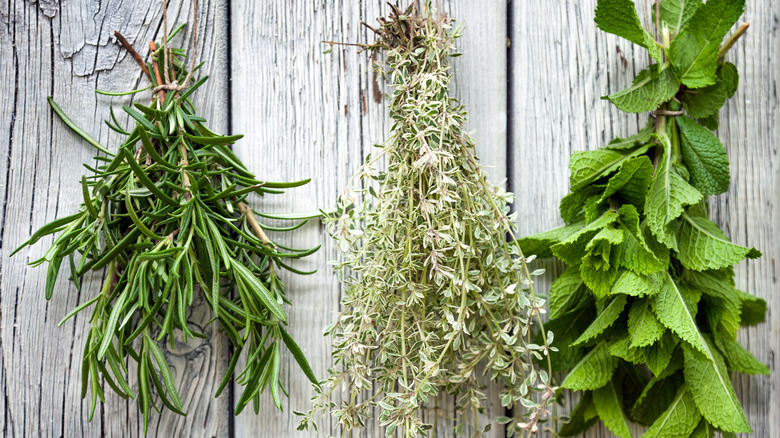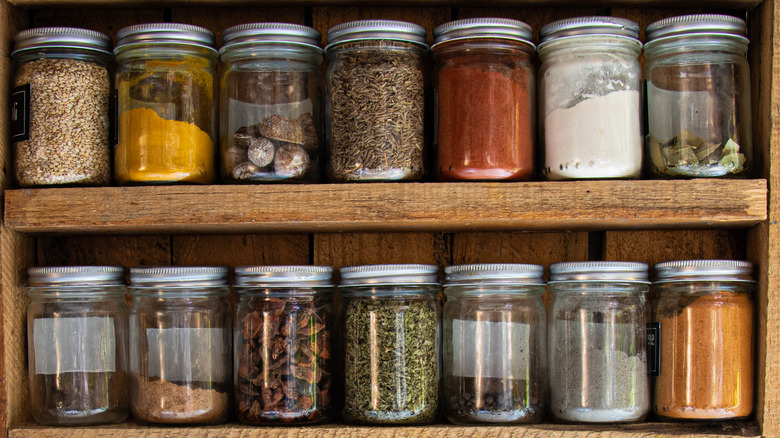Before Tossing Your Old Herbs, Hang Them To Dry And Extend Their Usage
Nothing livens up your dishes like herbs — quite literally the spice of life when it comes to mealtime. A well-stocked spice rack of dried oregano, basil, thyme, rosemary, and others add color, flavor, and interest to our soups, tacos, marinades, and everything in between. Using the basic store-bought options gets the job done, but drying your own herbs can yield a more vibrant, potent flavor, with no need to shell out the big bucks. This simple inexpensive hack is so obvious you may not have thought to try it, but with little more than some twine and time (though time-saving hacks like using the air-fryer are also an option), you can turn those bundles of fresh herbs into your own dried herbs that will be good for years to come.
First, wash your herbs and pat them dry. Removing moisture is key to proper drying for long-term use. Pick out any soggy leaves that have started to turn. Then split into bundles — less is more, as smaller bundles are better able to dry through. Tie twine around the stems and hang your bundles upside down, from kitchen shelving, in dark mud rooms or garages, or other dark, cool spaces. In a week or two, the herbs should be dry, crispy, and crumbly to the touch. Remove the leaves from the stems, crumble them into a rough powder, and store them in glass or plastic containers (or re-use store-bought spice containers). Be sure to label what's what before you stash herbs for future cooking.
Dried herbs add health benefits for years and years
Adding herbs and spices promotes heart and respiratory health, fighting inflammation with their phytochemicals while adding flavor and color. If your salt and pepper shakers are well worn, add and enhance flavor by broadening your horizons with a multitude of dried herbs, to unlock new worlds of flavor and health perks.
Which herbs are good candidates for this fresh-to-drying process? Most! Certain herbs like cilantro pack a punch of flavor when fresh, but become much milder when dried. But many others, like fresh dill, basil, oregano, and rosemary, translate beautifully to the dried format and retain their distinct aroma and flavor. As they dry, they become more concentrated, so the rule of thumb is to use three times less dried than fresh in recipes. In other words, your dried herbs will go a long way, and last a long time.
Fresh herbs are one of those items that will often go bad in your crisper drawer before you've had a chance to use them. Before tossing them, give those fresh bundles a second lease on life by drying them to use later — they'll keep far longer, to the tune of 1-4 years. You may notice their strength and potency slowly declining over this period, versus outright going bad. When your herbs have lost their luster, it's simply time to grab another bunch and dry your own to replenish your at-home herb stash.

